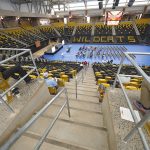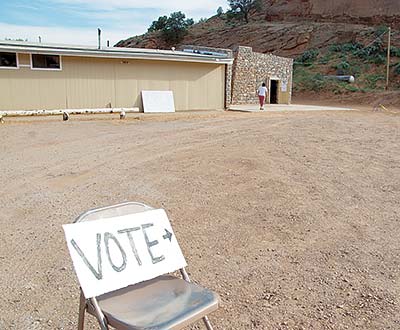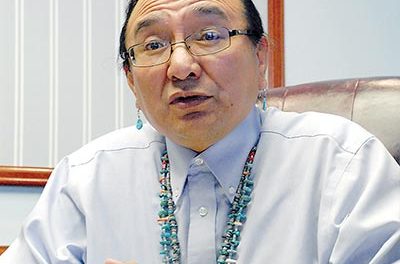
Former Navajo election supervisors sue in federal court

TUBA CITY
Two and a half years ago, former Chief Justice Herb Yazzie and Associate Justice Eleanor Shirley sat inside a courtroom at Tuba City Judicial District to hear oral arguments in the challenge to Christopher Clark Deschene’s fluency in the Navajo language.
Now, they are two of eight defendants in a case brought by nine former members of the election administration’s board of election supervisors.
The 2014 Navajo presidential election (which continued into 2015) was arguably the greatest political challenge for the Navajo Nation since the 1989 ouster of Chairman Peter MacDonald. The debate centered on a requirement that the Nation’s president be fluent in Diné Bizaad.
Many people thought the top vote-getter in the primary, Christopher Deschene, an engineer, a tribal energy attorney, and the current director of the Department of Energy’s Office of Indian Energy was capable of leading the Diné people. But the then-42-year-old was disqualified for his lack of fluency, prompting a dispute that led the Nation to postpone the 2014 presidential election twice.
Norman Begay, the estate of Harry D. Brown Sr. (who recently passed on), Wallace Charley, Michael Coan, Lenora Fulton, Fran George, Jonathan Tso, Ruth Watson, and Tom White Jr. – in November 2016 brought claims in federal court against the U.S. government for the acts and omissions of Yazzie, Shirley, and three others: Edison J. Wauneka (former executive director of the Navajo Election Administration), Richie Nez Sr., (chief hearing officer in the tribe’s Office of Hearings and Appeals), and the Navajo Nation.
The plaintiffs are seeking orders directing the defendants to pay their monetary damages, restore them to the positions to which they were elected, require the Navajo Election Administration to disclose the vote count for all plaintiffs who ran for office in the November 2014 election, in addition to other requested relief.
The plaintiffs, who upheld Deschene’s candidacy, argue that in an attempt to dictate the outcome of the 2014 election, the Navajo Supreme Court wrongfully held them in contempt of court without meaningful notice, an opportunity to adequately defend themselves, and the ability to confront the witnesses against them.
To read the full article, pick up your copy of the Navajo Times at your nearest newsstand Thursday mornings!
Are you a digital subscriber? Read the most recent three weeks of stories by logging in to your online account.







 Highway 264,
Highway 264, I-40, WB @ Winslow
I-40, WB @ Winslow